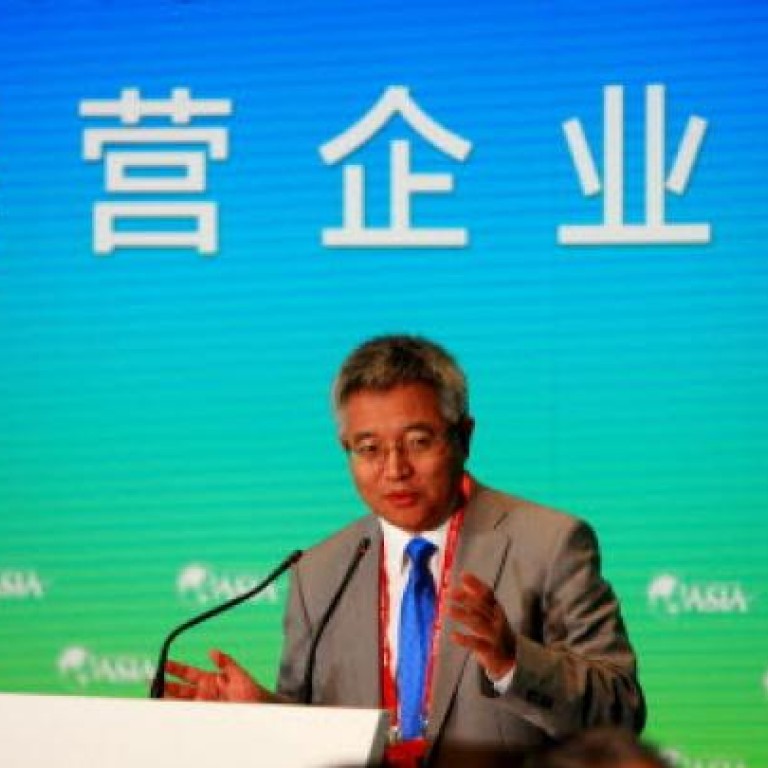
Boao forum panel hears calls for level playing field for private firms
Economists and businessmen say bias towards state firms has to end so small players can compete
The central government should intervene less in the private sector and concentrate on offering a level playing field for state-owned and private enterprises to maintain growth and investment, said participants at a panel discussion on the mainland economy at the Boao Forum for Asia in Hainan.
While private mainland companies needed to be more innovative, the biggest hurdles were the rules and policies that favoured state giants, said prominent academics, company executives and industry representatives at the annual economic meeting yesterday.
"The government must free its control," said Professor Zhang Weiying, an economist at Peking University. "As Premier Li Keqiang put it, we must cut off the hand that has been wrongly installed on the government's arm."
The central government has called for lower entry barriers for private firms, which they say are the key to boosting competition and stabilising the job market. But academics say Beijing had in the past decade given too many privileges to state-owned enterprises, including easy access to land, credit and other resources at low cost, creating state monopolies that disadvantaged private businesses.
Bao Yujun, head of the All China Private Enterprises Federation, said the private sector would be the key driver of investment in the next five to 10 years, given the central government's limited fiscal budget.
China would not be able to meet its annual 7.5 per cent economic growth target this year if private investment failed to make up at least 70 per cent of the country's planned fixed-asset investment of some 44 trillion yuan (HK$55 trillion), he said. However, private companies still faced many obstacles, such as heavy taxes, tightened lending and inadequate protection.
Li Yiwei, party secretary of Foshan, a satellite city of Guangzhou, acknowledged local governments should do more to encourage private investment.
Local authorities were less keen to roll out favourable policies for local private investors than for foreign investors because the amount of investment they attracted from abroad was a performance measure for cadres in their political careers.
Participants also said excessive government intervention had created overcapacity.
"Companies should not only study government plans but focus more on market demand. If not, the result is redundant construction and inefficient investments," said Li Jiange, chairman of China International Capital Corporation and a former senior development researcher at the State Council.
"Whenever companies blindly follow government directions, they always head in the wrong direction."
As an example, Li said a few years ago the government had encouraged development of the solar cell industry, only to reverse course and restrict investment after companies scrambled to pour money into the sector.
Zheng Yonggang, chairman of garment maker Shanshan Group, urged the government to treat all businesses equally and reduce unnecessary administrative reviews.
Participants agreed that opportunities for private enterprises had improved in several industries, including information technology, where companies such as Baidu and Tencent had become internationally competitive. Healthcare has grown at an average of 20 per cent in the past few years and financial services will improve as interest rates are liberalised.

